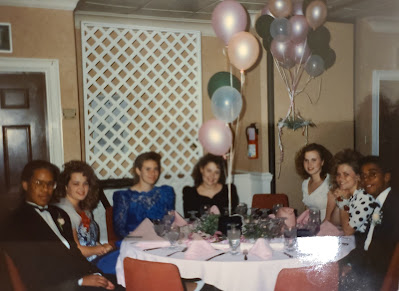"I see this hurting world of humanity
Your beloved ones
I see the construction crews, principalities
We've been overrun
I see the walls going up like towers
Hiding our bleeding hearts
From Your healing love and Your power
I'm on my knees in prayer, volunteering
And I can't wait
For You to send your demolition
Down from the sky
These walls have got to fall
I'll be your Joshua
Swing me back and let me fly
I'll ride Your wrecking ball, oh...
I'll ride Your wrecking ball"
--4 Him, "Wrecking Ball"
Israel is on the cusp of conquest. They've already dispatched the kings of the Amorites and Bashan, east of the Jordan and the tribes of Reuben, Gad, and Manasseh, are settling in to their new home (although the warriors of these tribes are honoring their vow to help the rest of Israel conquer the rest of Canaan before returning home). They've crossed the Jordan by miraculous means and are now getting ready to mount their first attack, on the walled city of Jericho. Their leader, Joshua is doing some scouting near Jericho when he encounters a mighty warrior. Joshua issues the challenge, "Are you friend or foe?" The answer might surprise you.
"Neither," the angel replies. "I am the commander of the Lord's armies."
That reply stunned me at first. Wait a second. I thought, Israel was God's Chosen People. Surely the answer should have been "friend"? But in the angelic warrior's refusal to "take sides" is the key to the conundrum of conquest. Even as I write this entry, Russia is seeking to conquer Ukraine as the world looks on in horror and disapproval. It's a story as old as time. Our own nation was built on conquest--taking over a land occupied by others and claiming it as our own. And yet, conquest doesn't seem to fit with the character of Christ, who claimed "My Kingdom is not of this world." How we do we square Jesus' position with that of the Israelites wiping out kingdom after kingdom as they take the Promised Land by violence?
The answer is in the angelic commander's words. God wasn't on Israel's "side". God doesn't take sides. What was happening to the Canaanite people could just easily happen to the people of Israel (and eventually did). The Canaanites had sown evil, violence, and destruction and that is what they were now reaping. If Israel strayed from the path of safety they would fare no better. God wasn't going to play favorites, either in dispensing His mercy (ask Rahab) or His justice. This is the difference between the Israelite conquest and all the others in history. For most conquering armies, the assumption is that "God is on our side." It is our "Manifest Destiny" you might say, to have this land. It never occurs to the conquerors that they themselves could just as easily lose their "right" to that land. For most colonizing powers, the convenient motto is "Might Makes Right." Our ability to dominate you is proof that we are God's Chosen. But God operates under a different standard. His Motto is "Right Makes Might" and those being displaced are a cautionary tale for the winners, not proof of their superiority.
The destruction of human life is not something that ever goes down easily. It shouldn't. But if it's hard for us to accept a whole tribe wiped out, imagine how hard it is for their Creator, their Father.
Today, we rightly frown on any attempt by one nation to take another's territory or sovereignty. The world's pretty much divided up amongst us all. But it's worth noting, that the world as it is, is not fit for eternity. One more pretty significant change in who runs the world--call it a conquest, if you will--must take place before we can truly enjoy Paradise. Evil, hatred, violence, selfishness and death itself must be wiped out. Light drives out darkness. Good drives out evil. Love conquers all.
"To see this evil scheme
Of the underworld in dire straits
Smashing to smithereens
All the barriers that hide Your face
To watch Your children in surprise
Fall to their knees
Open their eyes"
-4 Him, "Wrecking Ball"
Highlights of Deuteronomy 26-Joshua 12:6
- Moses' Last Words
- Israel Crosses the Jordan
- Rahab: The Original Hooker With a Heart of Gold
- Joshua Fights the Battle of Jericho
- The Ai/ Achan Debacle
- The Gibeonites Hoodwink Israel
Fun Facts
- Did you know what happened to Circumcision for the past few books? Right before the Israelites attacked Jericho, all the men of Israel were circumcised. I just find it interesting that this sign of belonging to God wasn't mentioned throughout the Exodus or in the many instructions to the people of Israel in Leviticus, Numbers, and Deuteronomy. It seems to disappear after Genesis and then reappears in Joshua. Maybe it was there and I missed it?
- Did you know that a group of Canaanite kings attacked the wimpy Gibeonites instead of attacking Israel? The Canaanite kings were terrified by the encroaching scourge of Israel's supernaturally aided armies. Rather than attack Israel, they decided to attack the people that had made peace with Israel. The Gibeonites ask Israel for help and they provide it, utterly defeating the Canaanite kings. I think it's kind of remarkable that Israel was willing to help Gibeon after their trickery.
What Stood out to Me
"And the coal trucks come a-runnin'
With their bellies full of coal
And their big wheels a-hummin'
Down this road that lies open like the soul of a woman
Who hid the spies who were lookin'
For the land of the milk and the honey"
--Rich Mullins, "Land of My Sojourn"
Rahab
Rahab is one of my favorite Bible characters. While much of Joshua is about the conquering of the Canaanites, here is the story of one Canaanite--and not a "good" one by any stretch, who found grace and mercy, simply by choosing to side with Israel--to extend their spies grace and mercy, in the hopes they--and their God--would do the same for her. Rahab was a prostitute and a foreigner, and on those two counts alone, according to everything we've read so far in the Old Testament, she should have been marked for destruction. It's a reminder that God looks at the heart.
Interestingly Rahab's motives were perhaps mainly self-interested. She knew destruction was coming and wanted to avoid that fate for herself and her family. Rahab decided it was better to place herself and her family at the mercy this scary-sounding God than to fight against Him. It was her decision to trust Him that is noteworthy. And when I think about it, I realize that as harsh and wrathful as the God of the Old Testament might be, I cannot think of a single story where someone surrendered to God and placed themselves at His mercy, trusting Him in a moment of complete vulnerability, only for God to reject them and destroy them. Rahab asked the spies--and through them God--to save her and her family. And He did.
Those Crafty Gibeonites
Even though the Gibeonites deceived Israel, I've always kind of liked them and their story. It echoes the story of Rahab in a way. They knew they were doomed, and figured, "Rather than trying to fight a losing battle, lets see if we can make peace." Basically, they pretended to be representatives of some faraway nation that is definitely not any kingdom found in Canaan. They even brought along moldy bread and worn clothes to "prove" how far they'd traveled. Joshua and the leaders of Israel are even suspicious of the very trickery the Gibeonites are attempting, but they don't consult the Lord and are swayed by the "proofs" of the Gibeonite's long journey. They make a covenant of peace with the Gibeonites. Three days later Israel rolls up on the city of Gibeon and realize they've been had. The Israelites are bound by their vow before God and have no choice but to spare the Gibeonites.
Joshua demands to know why the Gibeonites deceived them, saying they were from a far off land when in fact they were living right there in Canaan. To me the answer is obvious--they wanted to avoid destruction! What I find interesting is the Gibeonite's humble response: "And now behold we are in your hands. Do as it seems good and right in your sight to do to us." Their punishment was that they would be woodcutters and water carriers for the nation of Israel. I guess the Gibeonites never got the manly memo that "It's better to die on your feet, than live on your knees." I suppose their mindset was it's better to be a servant among God's people, than a warrior in a losing battle against them.

















































